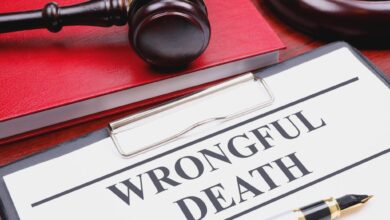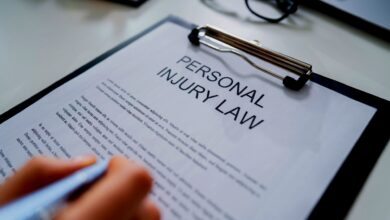Who Can Claim Wrongful Death Compensation On A Victim’s Behalf

The loss of a loved one is the worst nightmare for anyone. The trauma is even worse it happens due to carelessness or wrongful actions of another person. Unfortunately, millions of people in the US lose their lives due to negligent road mishaps and medical errors. Statistics show that 98,000 people died in the last year due to medical errors. The number is even bigger for road fatalities.
The quest for fairness and reimbursement becomes an essential part of the recovery process in such awful situations. Wrongful death lawsuits are available to hold those responsible liable for their actions. But who can seek compensation on the deceased person’s behalf? The answer differs based on the jurisdiction where you live.
The closest relatives of the person who passed away have a right under the law to file for compensation for negligent death. Let us explain who can seek wrongful death compensation is an essential phase in pursuing justice for your lost beloved.
Read More: How to Win a Wrongful Termination Lawsuit
Immediate family
Immediate family members are usually the first ones to be eligible to file a complaint regarding wrongful death. This group includes the deceased individual’s spouse, kids, and the parents. These individuals have an obvious connection to the victim.
Thus, they often have the easiest path to seeking compensation. Spouses can seek restitution for the financial and psychological costs of losing their partner. On the other hand, a deceased victim’s children and parents can also ask for restitution for their loss.
Extended family
Did you know that family members with extended ties may be able to file a lawsuit in some cases? However, this rule differs by jurisdiction. These individuals could be brothers and sisters, grandparents, uncles, aunts, or cousins.
The legality of their claim depends on the regional regulations and the facts of the case. Extended relatives may step in to try to get compensation if the person who died had no immediate relatives or if they decide not to file a grievance.
Life partners
Life partners are domestic partners or common-law partners rather than the spouses of the deceased person. However, their eligibility can be more complex than for married spouses because it often depends on showing that there is a committed, long-lasting relationship.
If you are a partner of a victim, you should dig deep into the local law and hire a local lawyer. For example, collaborating with a Wrongful Death Lawyer Portsmouth will be your best bet if you live in this New Hampshire city. The lawyer will provide proof of shared financial duties, living together, and other elements of a relationship at home to establish a claim in these circumstances.
Financial dependents
Individuals who rely on the deceased for monetary assistance are referred to as financial relatives. This subset may encompass the members of the immediate family and people who had a financial reliance on the person who died.
It includes adopted step-kids kids or even those who depended on the victim’s earnings for their financial security. If a person can show that they were financially dependent, they may have an appropriate claim for restitution.
Legal guardians
Legal parents of young people or those who were constitutionally disabled may be eligible to file a complaint regarding wrongful death. Guardianship empowers them to act on behalf of the person who passed away and seek restitution for their losses.
These cases frequently necessitate managing complicated legal processes. So, involving a lawyer is essential for ensuring the claim’s reliability and fulfillment.
Representatives of the estate
There may be an instance when none of the mentioned people have the ability or are ready to file an accusation of wrongful death. In this case, the personal representative of the victim’s estate may step in. The person in this position typically serves on behalf of the deceased person’s possessions.
They ensure looking for restitution for the estate and the recipients or heirs. Estate delegates can include executors, managers, or trustees according to the specific legal framework that is in place.
Read More: Which factors contribute most frequently to wrongful death?
Dependents with emotional ties
People who were emotionally reliant on the person who passed away can file a claim for a wrongful death. They do not have a legally recognized biological or financial connection with the deceased. This emotional dependence may be due to close relationships, mentoring, or additional significant bonds.
The requirements for psychological dependence can vary greatly. So, involving an attorney to determine your eligibility is vital.
Conclusion
Wrongful death lawsuits provide some comfort to the bereaved loved ones and those left behind. The process can be complicated and stressful. However, deciding who is eligible to be compensated is the first step in obtaining accountability for a tragic loss.











